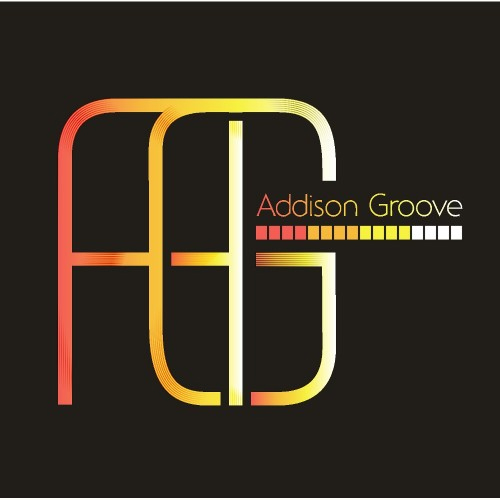Arriving at a convoluted time of cross-pollination, hybridisation and mutation, as the post-dubstep gold rush cranked into gear Addison Groove’s footwork-splicing ‘Footcrab’ remained an easy beast to pick out in a crowd. Notable examples aside, when it first emerged in late 2009 the club-hit was determinately, unabashedly danceable next to the calcifying trudge of many of the producer’s contemporaries, while also sounding starkly boxfresh in contrast to the rave-nostalgic trappings of some of the ‘purple’ dubstep set. Mostly, however, its uniqueness within the UK can largely be credited to its tapping into Chicago footwork. Looking for a way to push dubstep forward – preempting the slide towards the more recent routes of house and techno, Tony Williams had the great idea of repurposing what was, and remains, one of the most futuristic forms of music in the world. So at a time of abundant newness, ‘Footcrab’ stood out from the crowd by being the most new.
If only he’d done the proper thing and dined off his patented brand. Instead, the restlessly innovative Bristolian has moved on. In many ways, however, the producer has regressed. As well as downgrading the Addison Groove sound from a recombinant original to a one-part pastiche, with the Brit bass element now drastically dialled back, Transistor Rhythm looks to the roots of footwork, a lineage stretching through ghetto house all the way back to Miami bass and close relation New York electro: the secret history of 808s and tough, punchy machine-funk that has run parallel to house and hip hop through the years. There’s an early giveaway here in the shape of old school devotees Spank Rock, who collaborates on two tracks: while contemporary-sounding in its crispness, refinement and perfect tightness, Addison Groove’s debut set is, if still fresh-sounding, essentially a retro record. As a consequence, Transistor Rhythm is a far less distinctive statement than much of his earlier material.
As evocative of mental overload as it is of those fabulous B-boys at play, footwork brought an element of hysterical mania to the ghetto continuum – increased tempos, toms in anxiety-inducing disarray, and bad-trip micro-samples: decontextualised vocals repeated to hyperdelic levels of feverishness. Footwork’s ghetto antecedents, however, provide the makings for a far less intense listen, and by throwing his all into recreating the minimalist, stuttering trappings of old-school ghetto, Williams has left himself without a club-banger to rival his earlier recordings.
‘Bad Things’ and ‘Night To Remember’ churn sluggishly on rumbling drums, with little else other than spindly effects and vocal samples as accompaniment. Meanwhile ‘Starluck’ resembles a flimsy prog-techno track which is nobbled by the bass instead of driven by it, while the percussion on the spare ‘Savage Henry’ consists almost exclusively of a loping kick drum, a rhythm too uninteresting, and basic in its construction, to sustain an entire dance track. While the electro-funk ‘Sooperlooper’ and Baile-bass ‘Dance Of The Woman’ get the blood going, all things considered, the majority of the more up-tempo tracks here neither ignite nor go anywhere. It’s probably Williams’ way of staying true to the source material. Which is all very well, but there’s a problem with the execution.
Footwork’s use of tensely static structures and extreme repetition – the motional rigidity of it all – works in its favour. They lend it a fascinating air of strangeness, which quickly becomes an exhilarating type of derangement when combined with its speed and the overwhelming blizzard of production micro-detail. But, a legacy of his earlier incarnation, Williams’ choice to apply footwork’s repetition and single-channel trajectory to the slower, more minimalist ghettotech, results in flatness and monotony, while also throwing the relative emptiness of the tracks into sharp relief. Over the course of an entire album, the music’s sheer spaciousness becomes oppressive, stripping it of much of the energy that it might display in the mix, or in the context of a two track 12". Williams’ quest for authenticity gifts the album with an overall feeling of austerity – fine in theory, but in practice Transistor Rhythm ends up feeling rather ungenerous in its lack of reward.
It does gain traction, however, in its final trio of slow-burners, with the producer back in the fusion game and the realms of the unprecedented. Merging elegantly the 808 genres with the meditative end of 90s UK urban, the final act transposes the dreamy tension of drum & bass, or the claustrophobic throb of deep garage, over the skeleton of bounding ghetto funk. With the subdued tempos now working to service to the music, sister tracks ‘Skylight’ and ‘Entropy’ apply diced hypersoul and brooding bass pressure to Chicago’s sheer rhythms. It evokes a new kind of British inner city, one where the strung-out lassitude of those balmy London nights is rendered nervous by the lecherous thrust of ghetto house nightcrawling. A further move towards mood and texture, ‘Incredible Exhausted Bunny Ears’, marries close drum sounds and the fizz of 90s rave with effects hewed from the summery climes of funky house. It’s only at this point, when Williams’ UK roots play off against his US influences, that Transistor Rhythm actually feels vital, resulting in in a luscious closing suite to an otherwise arid record.


